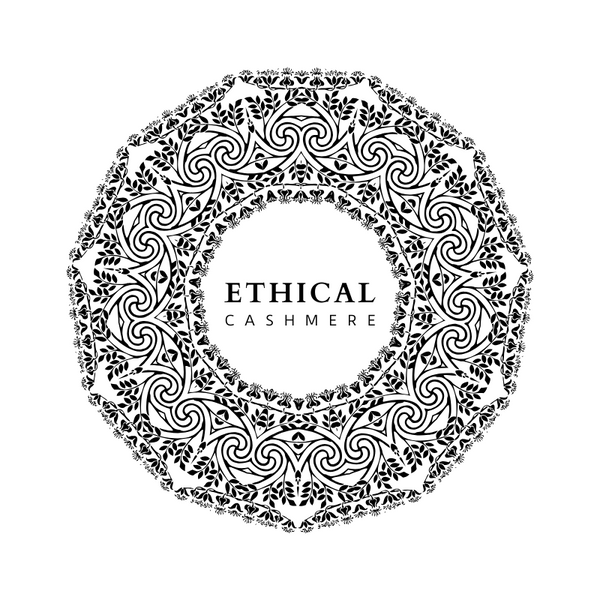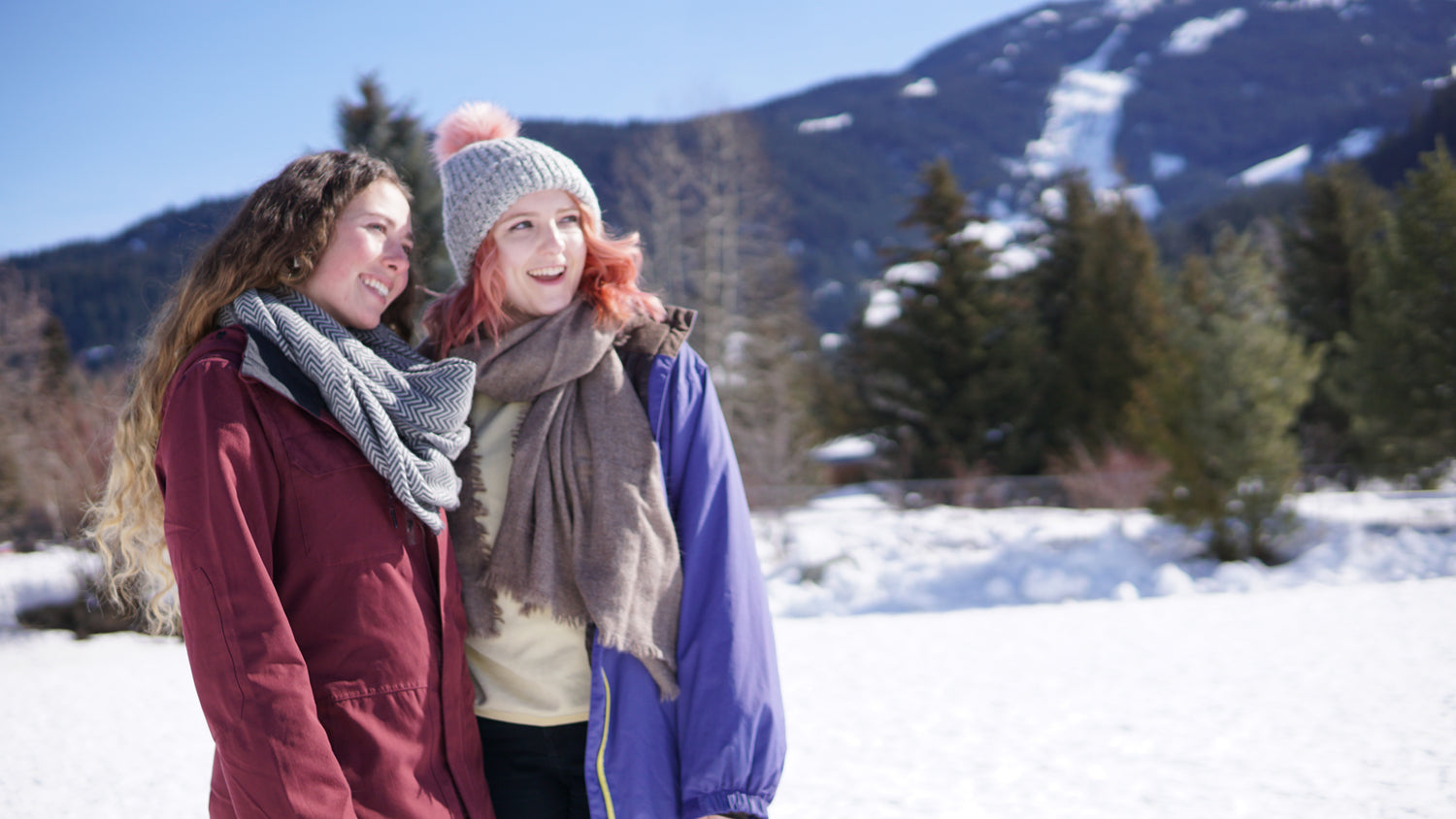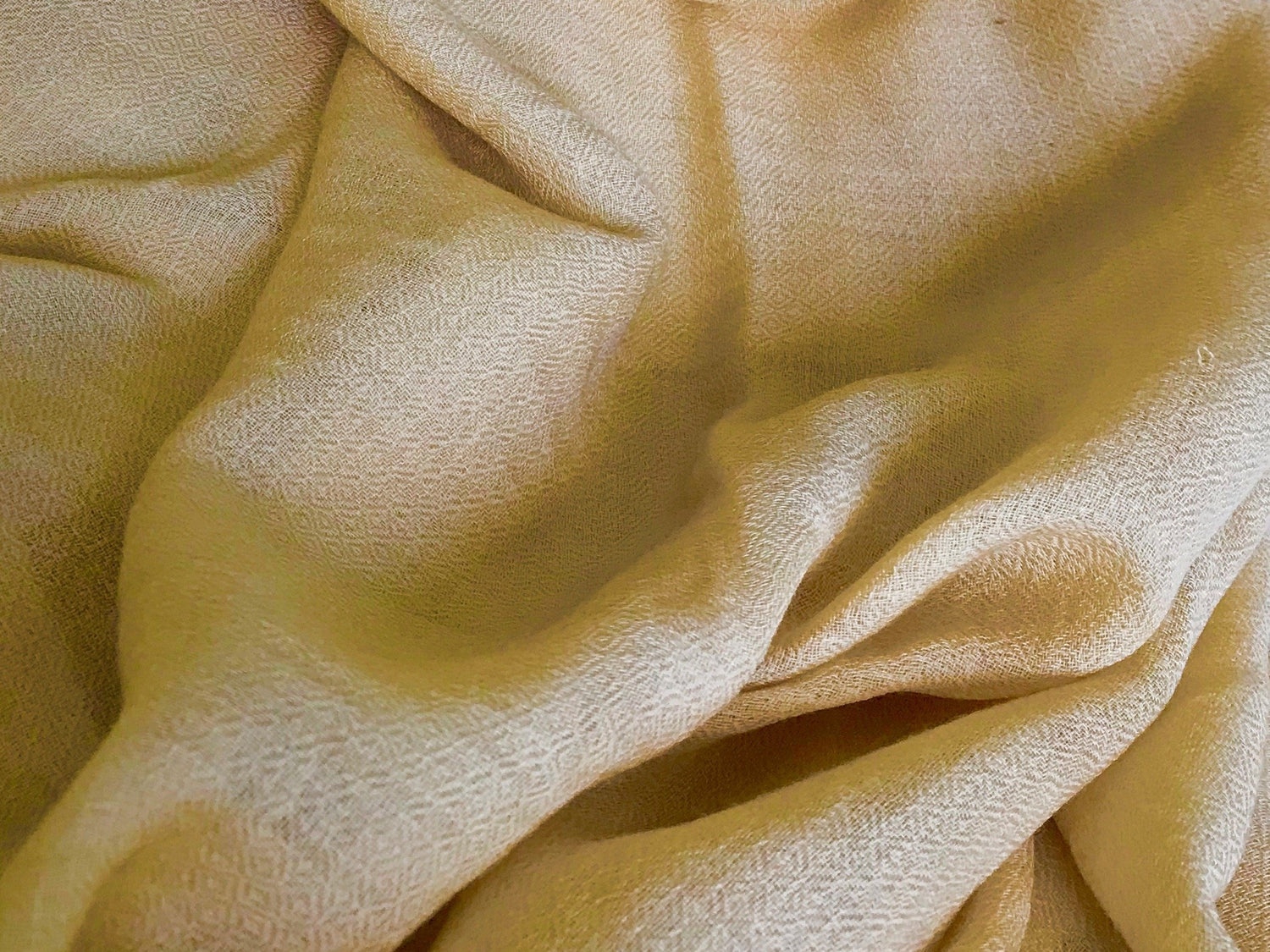Ethical Cashmere Shipments Are Now Carbon Neutral!
As an online store, Ethical Cashmere relies on parcel delivery services to get our original, handmade cashmere scarves to our customers. Today, the majority of these shipments are powered by fossil fuels, and Shopify's estimates calculate that an average shipment by merchants on their platform emits about 1kg CO2, which is like charging 120 smartphones on a fossil grid.
Carbon neutral shipping has been on our to-do list since we founded Ethical Cashmere. Until last year, we hadn't come across a way to do it that was affordable to a small business on a tight margin that was also convenient to shoppers. But Shopify's Offset app solved these problems, so much so that we could choose to subscribe to it even when the business is under pressure due to the pandemic slowdown.
How this works is by taking the actual shipment travel distance from tracking data, or if not available, substituting the calculated distance between sender and recipient. Then the app will estimate the carbon emissions, and periodically purchase the correct amount of carbon offset to compensate for the total shipping emissions within the period.
This means the customer does not need to tick a box or do anything special while shopping, and we also don't have to do any calculations or pay for special courier services! Best of all, the carbon offset is so affordable that we are easily able to absorb the cost, which we believe should ideally be the case rather than putting the choice on the customer.
How much does it cost to offset one shipment?
An average shipment is a lot more carbon efficient than personal travel of the same distance, because a lot of packages are delivered on the same trip. Averaged out, a package shipment emits about 1kg of CO2. Offsetting this using carbon credits from the type of project linked to the app is just half a cent.
This is because the project issuing the carbon credits is a forest preservation project in a developing country listed under the UN's REDD+ program that is meant to halt deforestation and forest degradation in developing countries. With developments in satellite monitoring of forest biomass, measuring carbon storage of forests has become much cheaper, and since a REDD+ forest is already there and does not have to be planted, carbon credits from such projects are the most affordable.

What about non-shipping carbon emissions?
How much of Ethical Cashmere's carbon footprint comes from shipping our products? Since the Offset app only calculates and buys carbon offsets for shipping emissions, what else is left from our business emissions that isn't offset?
As the resident environmental person, I did some back-of-the-envelope considerations. It turns out that, taking away the shipping emissions, Ethical Cashmere has a very low carbon footprint to begin with.
Traditional Himalayan cashmere is woven from free range cashmere goats herded seasonally in the mountains by nomads travelling entirely on foot. The cashmere is combed off by hand without using powered machines, and sold in villages and towns along the way.
Nowadays, the wool is usually made into yarn by machines which could be electrified. Completed products would be sent to delivery points by some kind of motorised transport, but the weaving and dye work in between are done by hand. Finally, batch shipment from Nepal to Australia would release some carbon.
However, considering that people in developing countries' tendency to combine multiple errands for trips to other towns to conserve funds, and the fact that customer shipments outnumber batch delivery about 50 to 1, plus the Offset app overestimates the calculation to be conservative, the emissions from the production side are negligible and likely absorbed by the conservatism within the shipping offsets.
Considering that the Shopify platform itself is already carbon neutral, we are satisfied that signing up to offset our parcel delivery emissions takes us almost all the way to being fully carbon balanced, if not actually so.
Is the carbon offset credible?
A carbon offset is only as good as its verification system. So that's what we reviewed.
The linked project is a forest preservation project in the Amazon rainforest which is managed by Pachama, a company that pursues nature restoration to help solve climate change.
The carbon accounting is verified by Verified Carbon Standard (VCS), the original pioneer of voluntary carbon offsetting and still the largest voluntary carbon offsetting provider. This gave us the assurance that the carbon credit is real and transparent.
Furthermore, for a separate personal project I had the opportunity to correspond with VCS, and also know that they have an insurance mechanism in place in case a forest-based carbon credit is cancelled out by events such as fire or disease, so that the purchased credit still removes carbon albeit from a different project. This gave us the assurance that the carbon credit is robust.
Carbon offsets alone won’t solve the problem of global warming... we are reducing the amount of overall carbon that we’re emitting, and if a bunch more people did that too, it would make our climate goals a whole lot easier to achieve. ~Shopify
There are many types of carbon offsetting projects. Some actively restore forest, some try to avoid emissions of methane from agriculture, and some innovate for low carbon fuels. All of these projects help, but the cost of the carbon credits would not be the same.
We believe that it is right for the lowest cost carbon credit to be taken up by small, independent businesses and members of the public, because this group of people does not have the revenue or capital of larger companies to fund the more expensive project types.




